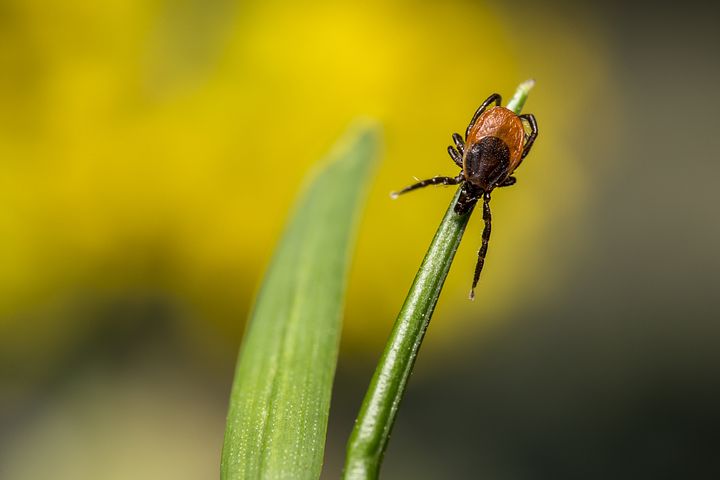Lone Star Tick Diseases: What They Are And How To Protect Your Home
You’ve probably heard that certain types of ticks can be a threat to your health. The deer ticks or the black-legged ticks are very well known for their ability to spread Lyme disease. But have you heard about lone star ticks?
A lone star tick is also one of the disease-spreading arachnids found in the United States. Like other arachnids, it has four pairs of legs and no antennae. Here are some conditions and diseases caused by a lone star tick.
Allergies to meat
A lone star tick can cause the alpha-gal syndrome, which is a food allergy to meat. Alpha-gal is a sugar molecule, not present in human beings. When someone is bitten by a lone star tick, the alpha-gal molecule is transmitted to the body, then an antibody reaction to the molecule occurs.

Just like other ticks, the lone star tick likes to feed on the blood of mammals, like deer and cows, explained Cosby Stone, MD, MPH, a clinical research fellow in allergy and immunology at Vanderbilt University Medical Center. When a tick bites one of these animals, the tick can pick up a sugar called alpha-gal.
When the tick then bites a human, the germs from the bite and the alpha-gal are transmitted to the human host, triggering a person’s immune system to make antibodies to the alpha-gal. “Because you don’t make this sugar in your body, it’s recognized as something foreign, and you can become allergic to it,” said Dr. Stone. The result: an alpha-gal allergy.
Alpha-gal sugar is in a lot of foods and dishes you may eat frequently, like beef, pork, lamb, dairy, and gelatin (which is an animal-based product). If you acquire this allergy, you’ll react when you eat a steak and possibly when you drink a glass of milk. Read more from Health…
Once an allergic reaction is set up in your body as explained above, you may consequently become allergic to red meat.
STARI
Southern tick-associated rash illness (STARI) causes a round rash at the site of the bite within 7 days. It may look similar to a bull’s eye rash, which is commonly associated with Lyme disease. No blood tests have been developed for STARI, but it has well-known symptoms.
The rash of STARI is a red, expanding “bull’s-eye” lesion that develops around the site of a lone star tick bite. The rash usually appears within 7 days of the tick bite and expands to a diameter of 8 centimeters (3 inches) or more. The rash should not be confused with much smaller areas of redness and discomfort that can occur commonly at the site of any tick bite. Patients may also experience fatigue, headache, fever, and muscle pains. The saliva from lone star ticks can be irritating; redness and discomfort at a bite site does not necessarily indicate an infection. Read more from CDC…
Other symptoms to check for may include headache, fever, fatigue, and muscle or joint pain. In case you are experiencing these symptoms, and you suspect you may have been bitten by a tick, it’s advisable to go for a medical checkup.
Heartland virus
This virus is of the genus Bandivirus. The bite of an infected lone star tick may spread the Heartland virus to people. It is not yet known whether all types of ticks spread this virus.

The Heartland virus is a potentially fatal virus that is part of the genus Bandavirus. Lone star tick bites can transmit the Heartland virus to humans and animals. It has been found in deer, coyotes, raccoons, and moose.
The first reported cases of the Heartland virus were in Missouri in 2009. Since then, there have been cases in 11 states across the South and Midwest.
Symptoms occur within 2 weeks of transmission. In some instances, they may be severe enough to require hospitalization.
Symptoms include: joint pain, high fever, nausea, diarrhea, bruising, fatigue, decreased appetite
Diagnostic testing may identify clinical symptoms including: lower-than-typical white blood cells and platelets, increased liver enzyme levels. Read more from Healthline…
Other symptoms of the Heartland virus may include fever, fatigue, decreased appetite, headache, diarrhea, and muscle pains.
Ticks transmit viruses and diseases, which is why the possibility of ticks around your home or yard should not be taken lightly. Backyard Bug Patrol is a call away from assisting you with any tick invasion in your home in Reston, VA. Reach out to us today and let’s help keep your loved ones safe.
